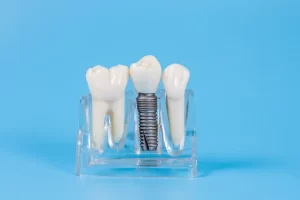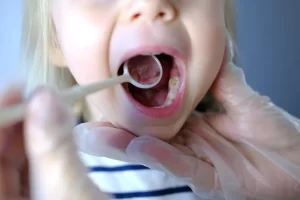Welcome to Smile Dental, a leading center for kids’ dentistry in Toronto. Situated in the heart of St. Clair, we’re here to provide comprehensive dental treatment to your family’s littlest members. With our specialized expertise in pediatric dentistry, we’re here to address a common concern among parents: cavities in baby teeth.
Understanding Cavities in Baby Teeth
Cavities, also known as dental caries, arise when bacteria in the mouth generate acid, which begins to erode the enamel of the teeth. While some consider cavities in baby teeth insignificant because they are temporary, the reality is quite different. The health of baby teeth is critical for a child’s overall oral health and development.
Why Cavities in Baby Teeth Shouldn't Be Ignored
Cavities in baby teeth can lead to immediate pain, discomfort, and infection, affecting a child’s ability to eat, speak, and concentrate. Moreover, untreated cavities can escalate into more severe infections and disrupt the development of permanent teeth. This is why Smile Dental stresses the necessity of regular checkups and preventative treatment.
Also Read: Cavity Prevention For Kids: Essential Tips For Parents
Why Prioritize Baby Teeth?
Maintaining the health of baby teeth is essential until they are naturally ready to fall out and be replaced by permanent teeth. Healthy baby teeth help in:
- Proper chewing and nutrition
- Speech development
- Jaw and facial development
- Guiding permanent teeth into their correct positions
Impact of Sugary Foods on Kids' Dental Health
Sugary foods and beverages are a significant contributor to the development of cavities in both children and adults. The scenario is particularly concerning in children due to their typically higher consumption of such items.
When children consume sugary foods, the bacteria in their mouths thrive as they feed on the sugar, producing acids that attack tooth enamel. Sugar consumption regularly raises the risk of cavities, especially if dental hygiene is poor.
Tips to Mitigate Sugar's Impact on Dental Health
- Limit Sugary Snacks: Try to limit the intake of sugary snacks and drinks. Choose healthy snacks such as vegetables, fruit, and cheese.
- Daily Brushing and Flossing: Teach your kids to use fluoride toothpaste and brush their teeth at least twice daily.
- Routine Dental Checkups: Regular visits to a pediatric dentist in Toronto can help detect and prevent dental problems before they worsen.

Kids Dentistry Vs General Dentistry: What's the Difference?
Parents frequently ask us the difference between pediatric and general dentistry at Smile Dental. Understanding these differences might help parents make more educated decisions about their child’s dental care.
Specialized Pediatric Care
Kids’ dentistry is a field of dentistry that focuses on the oral health of children from infancy through teenage years. Pediatric dentists undergo additional training to deal with children’s teeth development, behaviour, physical growth, and development, as well as the unique needs of pediatric dentistry.
Read More: Dental Crowns For Children: When Are They Needed?
General Dentistry
Conversely, general dentistry treats patients of all ages. While general dentists can certainly treat children, they might need to gain the specialized training pediatric dentists have when managing younger patients.
Why Choose Kids' Dentistry?
Pediatric dentistry focuses on the treatment and prevention of future dental issues. It offers:
- Child-friendly Services: Our pediatric dentistry offices are not only pleasant and comfortable for children but also designed with their comfort in mind.
- Preventative Measures: Besides routine treatments, pediatric dentists specialize in nutrition, habit counselling, and gum disease management.
- Behavioural Techniques: Pediatric dentists are skilled in techniques that help children feel at ease during dental appointments.
Final Thoughts: The Importance of Early Dental Care
At Smile Dental in St. Clair, Toronto, early dental treatment is critical to preserving a healthy smile for a lifetime. Recognizing the signs of cavities in baby teeth and learning how sugary foods affect your child’s oral health are essential steps toward preventing dental problems.
Whether considering general or specialized pediatric dentistry for your child, remember that early intervention is the best approach to preventing future dental problems. We invite you to visit our clinic and receive high-quality dental care tailored to your children’s needs.
Please contact Smile Dental right now to make an appointment or for more information about pediatric dentistry. Let us help you ensure your child’s smile is beautiful and healthy!



